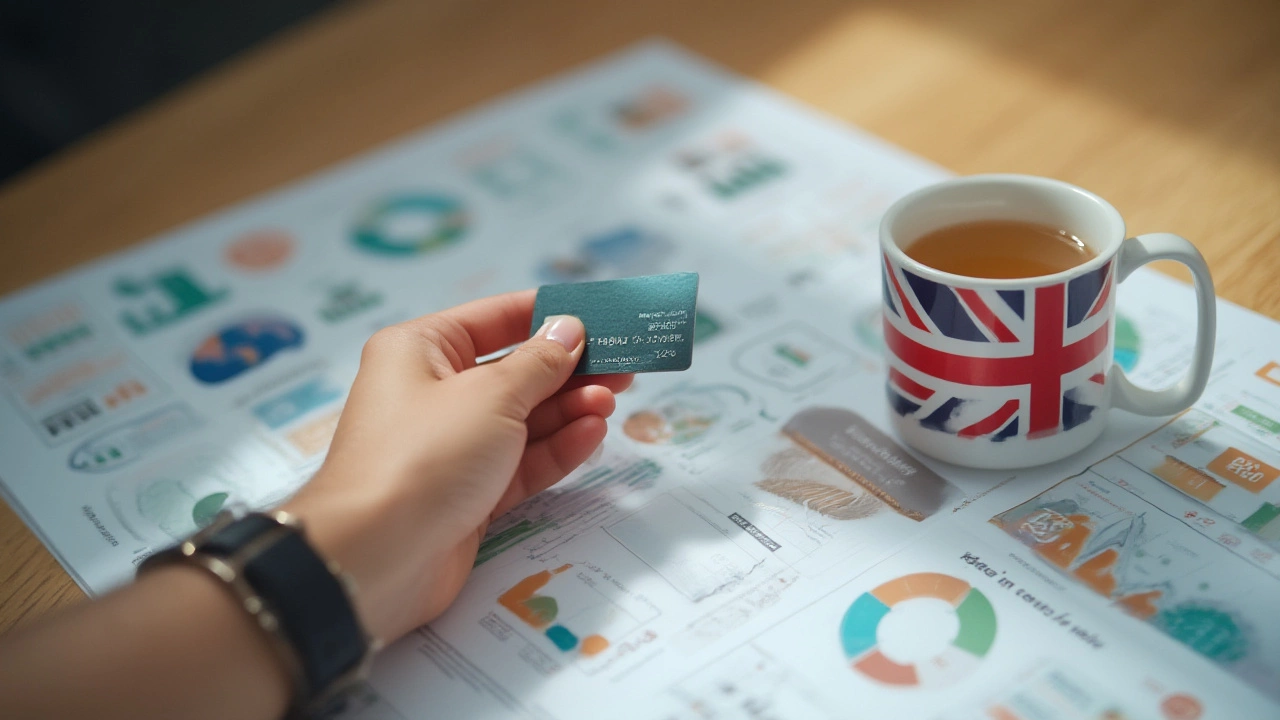You might hear all sorts of horror stories about credit cards—people buried under mountains of debt, maxed out cards, or those mysterious extra charges showing up on your bill. So, is it any wonder folks get anxious just thinking about swiping that shiny plastic? Here’s the part that doesn’t get talked about enough: credit cards can be incredibly helpful if you use them right. They come with perks like purchase protection, rewards, and the convenience to buy something without lugging around cash. But one thing sets the people who win at the credit card game apart from the ones who flounder. This is what I call the golden rule. And honestly? If you get this one thing down, the whole credit card world gets a heck of a lot less scary.
The Golden Rule: Always Pay Your Balance in Full
This rule sounds almost too simple, but it’s the absolute key. Always pay off your total credit card balance, in full, by the due date. No exceptions. No excuses. The second you start leaving even a small unpaid amount, you hand your bank a golden ticket to slap you with interest charges. And the interest rates on credit cards? They tend to start around 20% APR, with many cards charging upwards of 25% or even 29.99% if you miss payments. That’s way more than you’d pay for a car loan or a mortgage. Every year, Americans pay more than $120 billion in credit card interest and fees, mostly because they carry balances from month to month. That’s money going straight to banks. The folks who reap the real rewards of credit cards—the cash-back, the travel points, those fun little perks—are the ones who never let a cent linger past the due date. Think of it this way: when you pay the full balance, you use the bank's money for free for up to a month. But carry even $1 past the deadline, and you’re suddenly paying sky-high rent for your money. It’s not just about beating interest, either. When you always pay in full, keeping track of your spending gets easier, your credit score shines, and you’re so much less likely to slip into debt.
Of course, life happens and stuff pops up. But if you know you can’t clear your balance, treat your card as a plan B—not your main way to pay. Stick with your debit card, cash, or use your credit card for emergencies only until you’re able to pay off what you owe each month. The golden rule isn’t just the secret to staying out of trouble; it’s the cheat code for actually making credit cards work in your favor. You get the perks—those miles, rewards, and fraud protection—without ever paying a dime in interest. It turns your card into a financial tool, not a trap.
The Science Behind Why This Rule Works
Okay, so why does paying your balance in full matter so much? Banks really, really want you to carry a balance. That’s how they make their money. Let’s get concrete: if you have a $2,000 balance on a card with a 24% APR and make only the minimum payments (usually about $40 or so per month), you’ll spend almost twelve years paying it off and fork over around $2,300 in interest alone. That’s more than double what you spent! Even paying $5,000 in car repairs or flights can turn into a long-term burden if you don’t squash the balance each month.
Your credit score also gets a boost when you pay in full. One of the biggest factors in your credit score (about 30% of it) is credit utilization—the percentage of your available credit you’re using at any time. The lower your utilization, the better. When you pay off your balance in full, your utilization remains low, your score goes up, and you’re more likely to get awesome credit offers in the future. Banks may use that score to decide if you’ll get approved for a mortgage, apartment, or even a job (some employers check credit!).
Another reason paying in full is so effective: it protects you from late fees and penalty APRs. Miss the due date, and your interest rate can skyrocket, sometimes up to nearly 30%. Plus, most late payments stick around on your credit report for over seven years. No one wants that black mark following them around.

Credit Card Myths That Lead People Astray
Here’s where things get sticky—people usually get tripped up by some very persistent myths. If you’ve ever heard someone say, "You should leave a small balance on your credit card, it helps your score," then you’ve been told a lie. There’s no hidden benefit for keeping a balance. If anything, that just makes the bank richer. Credit bureaus reward responsible use, and that means using your card for stuff you’d buy anyway, then paying the bill entirely.
Another trap: minimum payments. Credit card statements show a minimum payment in bold, almost making it look like it’s what you should pay. But minimum payments are just the absolute least you can pay to keep your account in good status. Pay only that, and interest racks up fast. Think of minimum payments as a lifeline, not a habit.
Some folks treat credit cards like free money, forgetting what they spend—until the bill arrives. The truth? It’s only “free” if you treat the limit as the ceiling, not a suggestion. Even a 2023 study by the Consumer Financial Protection Bureau found most late payment fees happen simply because people forget when bills are due, not because they can’t afford them. Setting up autopay, payment reminders, or using your phone calendar can keep those late fees far away.
Then there are the folks who avoid credit cards entirely out of fear, thinking cash or debit is always safer. But, here’s the twist—paying with credit gives you extra fraud protections. If someone steals your card number and goes on a shopping spree, you’re legally only on the hook for up to $50 (and with most banks, it’s $0 liability as long as you report it quickly). Debit cards? That stolen money is actually gone from your account while the bank investigates, which can take weeks. As long as you follow that golden rule, using credit can actually be safer.
Tactical Tips to Make the Golden Rule Work for You
Ready to stop feeling anxious about your credit card? Start by thinking about it like a debit card: don’t spend what you can’t afford to clear off this month. Treat your limit as your absolute max, not your goal. Those high limits are tempting, but remember, it just means you could get into a bigger mess if you’re not careful.
Here’s a set of practical steps you can actually stick to:
- Set up notifications on your phone or bank app for when your statement posts, so you never miss seeing your balance.
- Enable autopay for the full balance. Almost every bank or credit union offers this in 2025, and it’s the best way to stop missed payments in their tracks.
- Check your credit card app once a week, even if you’re not actively spending, just to spot any weird charges or fees.
- Make payments early instead of waiting for the last possible second—if something goes wrong (like your transfer bouncing), you’ll have time to fix it.
- If you ever can’t pay the full balance, pay as much above the minimum as possible and pause card use until you’re caught up.
Maximize rewards without extra spending. Pick a card with perks that fit your life—like groceries, gas, or travel—and use it only for those things instead of going on a random shopping spree. People who treat points or cashback as a game usually spend more than they need! Budget first, then let the rewards be a nice bonus. Speaking of which, check out card agreements before signing up—plenty of cards in 2025 come with annual fees, sneaky foreign transaction charges, or restrictions on their best rewards. Shop around. There are hundreds of no-fee cards out now that still offer solid perks.
If you want your credit score to hit hero status, aim to keep your balance under 30% of your limit at all times—even during busy shopping months. Going above that, even if you pay it off, can ding your score for a while. Credit bureaus see regular big balances as risky, even if you’re always on time with payments. And yes, you can ask for a credit limit increase once a year (especially after getting a raise or bonus), which instantly lowers your utilization. Just don’t use more credit because you have it—keep spending the same or less.
Finally, don’t get sucked into "special" financing offers for big purchases, like new phones or laptops, if you aren’t 100% sure you’ll pay them off on time. Those 0% interest deals often come with gotchas: if you miss one payment, they might slam you with all the back interest in one messy bill. Always read the fine print.
Sticking to this golden rule of credit cards means you’ll never pay a penny in interest, keep your credit score healthy, and actually get to enjoy those perks you’ve been promised. It flips your card from something scary into something seriously powerful—like money magic. If you feel overwhelmed by options, stick to one or two cards that fit your life, keep things simple, and use technology to your advantage. You’ll wonder why credit cards ever felt like a headache in the first place.
